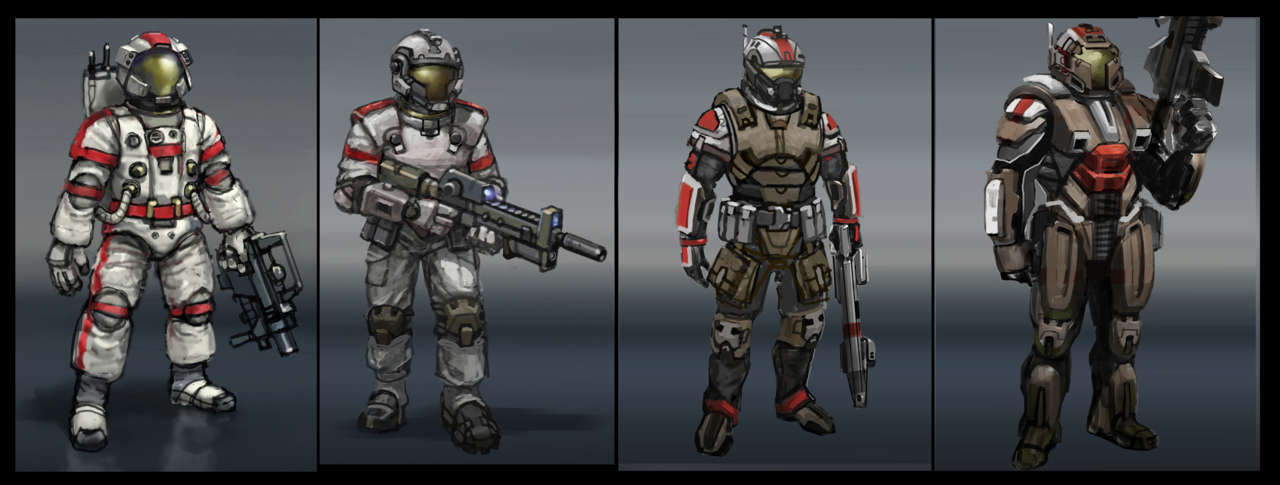Few developers have had as great an impact on video games as Sid Meier. Just over three decades ago, Meier founded MicroProse Software with his friend Bill Stealey. Together, the two set to work developing such military simulation games as Silent Service and F-19 Stealth Fighter. However, it was Sid Meier’s Pirates! and Sid Meier’s Civilization that solidified Meier’s legacy in this industry. The genre-mixing action of Pirates! and the sheer scale of Civilization helped jump-start a new branch of the strategy genre.
Today, Meier has seven Civilization games under his belt--along with their various expansions--and has helped develop dozens of other games. He has since left MicroProse behind, and currently works out of his new studio, Firaxis, which has partnered with publisher Take-Two Interactive. With the announcement of Sid Meier’s Civilization: Beyond Earth, I spoke to Meier about his work, virtual reality, and the future of humanity.

You’ve been with Firaxis since its inception in ‘96. Not many stay in AAA development that long. What is it about the culture of Take-Two and Firaxis that has kept you excited and enthusiastic about your work?
I get to create computer games and that is what I like to do. It's a great place to work, with a lot of talented people. They have been very good about letting us try new things and letting us build on some of our other games. A combination of making the games I like to play and like to make. And having the kind of stability that is not always the case in the industry. There's really no reason to go anywhere else.
Did you ever imagine you’d still be working in games after all these years?
I kind of hoped I would. It's just a wonderful job and tons of fun. It's what I love to do. I've always tried to be part of the creative side of things and tended to partner with people who like to do the business stuff, which leaves me free to do the game design and programming which is what I really enjoy doing. So when we started MicroProse, or when we were independent at Firaxis, I did a lot of the game stuff and worked with people who enjoyed the business side. Now that we are a part of Take-Two, they handle all the business stuff and we get to do all the fun creative stuff. It's something I've always enjoyed doing and want to continue doing. It’s been a lot of fun.
Sounds like you’re free to just focus on your passions.
Right, exactly. What I enjoy is thinking about games, and designing games, and programming games, and playing games. We're kind of free to do that here as a studio. I'm not all that interested in the business side of things, so that allows me to do what I like to do.
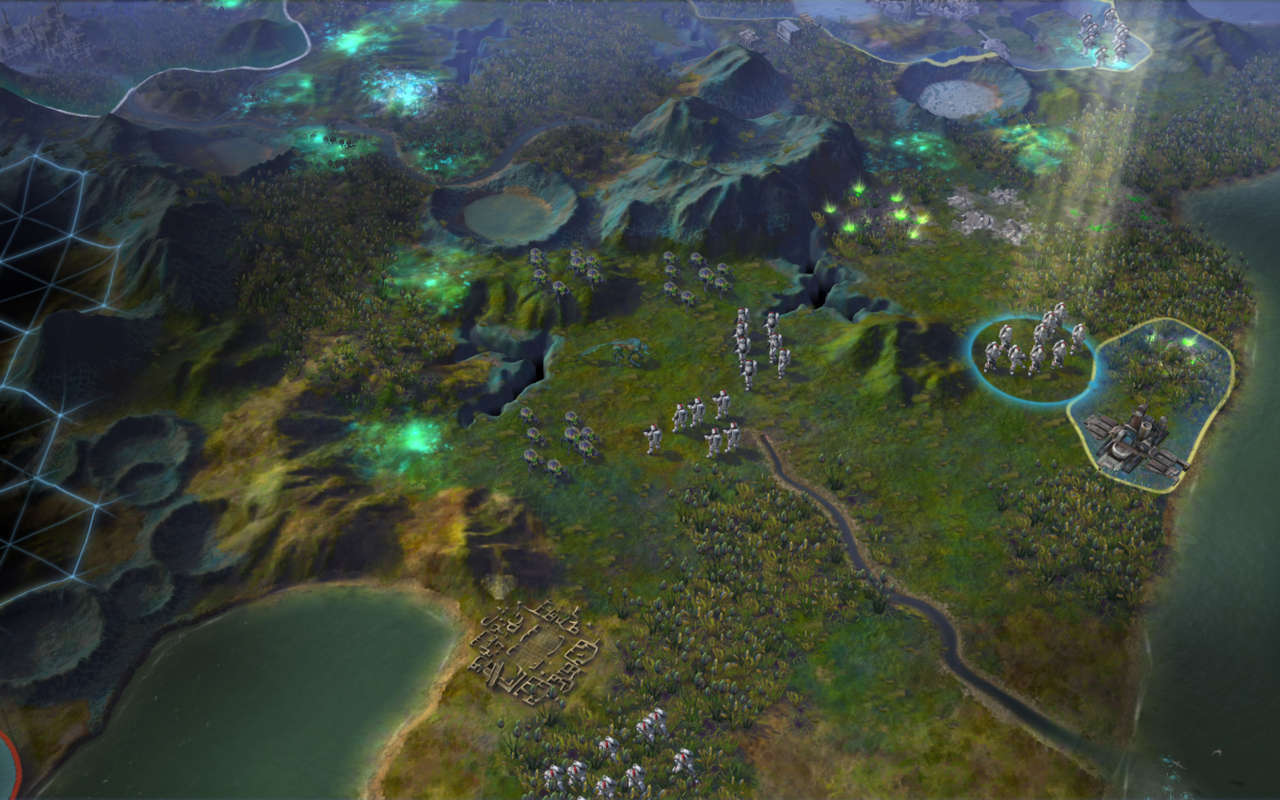
What constitutes a Sid Meier game?
I think we take the player pretty seriously. We assume they want to spend some interesting time with a game, that they're willing to think, be imaginative, and try out different things. That they're looking for an experience that is going to engage a good part of their brain and allow them to learn something, try something, or experience something new. A lot of my games have involved historical topics or real world things you can kind of sink your teeth into. I often have an experience when I am reading a book or watching a movie or something and think, 'What would I have done in that situation? Would I have done something differently? What would have happened if it had gone this way instead of that way?'
And that is what games kind of allow you to do: experiment and try out different possibilities. Civilization is certainly a good example of a game that never plays the same way twice and it always throws a new challenge at you and a new opportunity. You learn a new thing each time you play. At least, I hope that's true of the games that I design. That's really what I'm trying to accomplish.
I know the joy of discovery is something that draws a lot of people to your games. How do you design a game that allows for that sort of exploration and discovery but is also accessible enough for newcomers, or people who aren't familiar with your style of games?
I think we take the player pretty seriously. We assume they're willing to think, be imaginative, and try out different things. That they're looking for an experience that is going to engage a good part of their brain and allow them to learn something, try something, or experience something new.
Well, we play the games to death when we develop them. So everywhere the player goes, we've already kind of been there and checked out that part of the game with that goal in mind. It's kind of our philosophy not to put the player on a set of rails and take them down one path. Instead, we give them all these tools and turn them loose in our world. I think getting out of the way of the player and letting them have the fun is fundamental to the way we make games.
That's the experience we are hoping the player looks back on after they've finished. One way or the other, we're hoping you feel you've evolved a little bit; you've traveled an interesting path and you know something a little more than you did when you started playing. That is what makes games rewarding to play: to look back on when you started the scenario and see how things have changed and what you have learned over that period of time.
Virtual reality is a big talking point in the industry right now. Do you see VR or AR as having a future with the sort of simulation games you design?
That is a tough one. We've looked at our games in 3D with some of the 3D tools that are out there, and it is kind of cool. If there is a VR revolution, we're probably not going to be leading the charge with strategy and map-based games and things like that. It's more, perhaps, suitable for immersive-type games initially. It's an interesting technology, but our philosophy has always been what's really cool about a game takes place in your imagination. The size of the screen, the number of colors, or whether it’s 2D or 3D is not fundamentally what’s going to make the game great or not great. It's what we can create in your imagination, in terms of a story and an adventure for you to pursue, that’s important. I think VR is a cool idea, but it's really not my area of expertise to say "Yes, it's going to be awesome!" or "No, it's just another technology that has some certain applications."
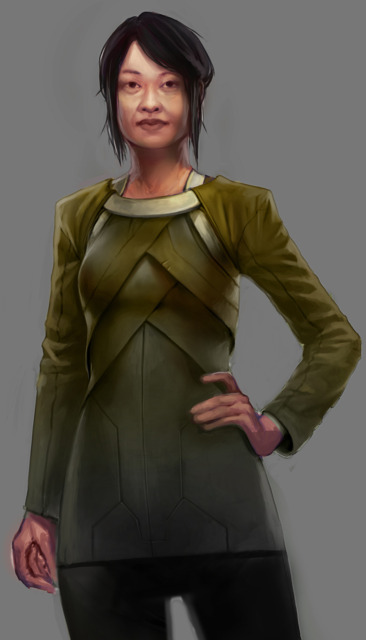
But as graphical fidelity continues to improve, how do you stay true to that vision of engaging a player’s imagination? How do you engage a player’s imagination when you can just show exactly what you mean on the screen?
I think what [improved graphical technology] does is it probably broadens the audience. I think that originally, in the good old days, you had to be willing to suspend your disbelief. You had to be willing to believe that those few pixels in Final Fantasy were a warrior. And not everybody was willing to do that. You can go to a movie and see awesome graphics, or play a computer game with not-so-awesome graphics. So that kind of limited the audience to people who were willing to do that.
I think the graphic technology and all the presentation technology today kind of broadens the audience. You don't have to work quite as hard to imagine what is going on. We can give you better input and better cues as to what's happening, but it's still not the real world. It's still not a fully realistic world and I'm not sure we even want that. You still have to bring your imagination to the party. But I think it's a lot easier for people to do these days because we are able to present a better-looking world, more realistic world and you don't have to work as hard to get into the fantasy of the game.
Why is engagement on an imagination level important for games, and why is it something you prioritize in your designs as a game maker?
I think it's what's unique about video games. That we invite you to take a starring role, that we invite you to be the main character, we invite you to tell your own story. If you are watching a movie or a TV show or reading a book you are experiencing someone else's story. You are observing someone else's story. Whereas in video games, you're telling your own story--you are the center of the action. I think that is why your imagination is so important. We need you there to tell the story. If you close your eyes or fall asleep, the story stops. It's not like watching a movie, where if you take a little nap the movie continues on. We've got to get you engaged because that is what the experience is about. The side effect of that is the one-more-turn phenomenon where you lose track of time. You’re drawn into this world, and that's what we try to do. That's what makes games a different and richer experience than a lot of other forms of entertainment.
Why the choice to bring back an Alpha Centari-style game today?
When I talk to fans at conventions, they always ask for Pirates, Railroads, and Alpha Centauri. They're already getting Civilization, and that was probably at the top of their list. It's been quite a while since Alpha Centauri came out. We've got a lot of new ideas, have learned a lot, and there’s so much new stuff we can do with a science fiction setting. The Civilization series has come so far and we can do a lot of new stuff now that we couldn't do before. We had an opportunity with people [at Firaxis] who had some great ideas on how to put this together--and it just all came together! We're happy to be able to have a chance to do it.
How would you compare the tone of Alpha Centauri versus the Civilization series?
I think whenever you go into a futuristic, or a hypothetical, or change from a historical to a non-historical type of setting, certain things change. There are certain things you can do there that you can't do with a historical topic. I think Alpha Centauri did a great job of taking advantage of what the new possibilities were of a science fiction setting through its characters and with the very interesting history. It almost created its own pseudo-history to explain what was going on--a plausible connection from where we are to today to the setting of Alpha Centauri.
I thought [Alpha Centauri] did a very good job of creating a sci-fi future that was something players could relate to. That's always been the strength of the Civilization series: relatability. If you run into Gandhi or Genghis Khan you have some expectations of what his personality might be. If you’re inventing the wheel or electricity these are concepts you can kind of understand intuitively. You don't have to go read the manual to figure out what the point of this is. I think Alpha Centauri also did a good job of introducing you to concepts that made sense even though they weren't, perhaps, historical concepts. You could kind of play with your intuition as opposed to trying to read the manual and figure out what the game was all about.
I recently went back and watched some of those secret project completion videos--in particular the clones vats video--and they reminded me how foreboding Alpha Centauri felt. Like, 'What am I doing in the pursuit of victory? What am I giving up?' Do you think the Alpha Centauri games had a positive outlook on our future?
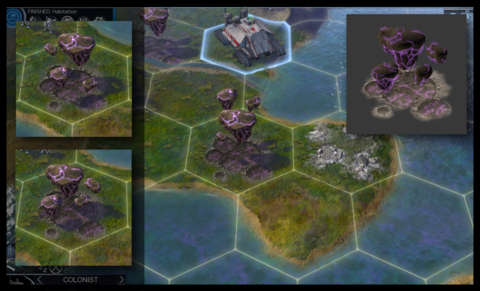
I wouldn't say that. Civilization relies on the balance of danger, menace, and opportunity. There is the danger of being conquered, but there’s also the opportunity to build an awesome spaceship or to build all these wonders. It's important to do well because there are all these opportunities, but there's also this danger if you don't pay attention. I think Alpha Centauri captured that as well. The future isn't perfect, but it's not a disaster either. And you have this role to play to determine whether the future is a good future or not such a good future. Again, the player is the star--the main agent--of what’s going on. I think Alpha Centauri captured that.
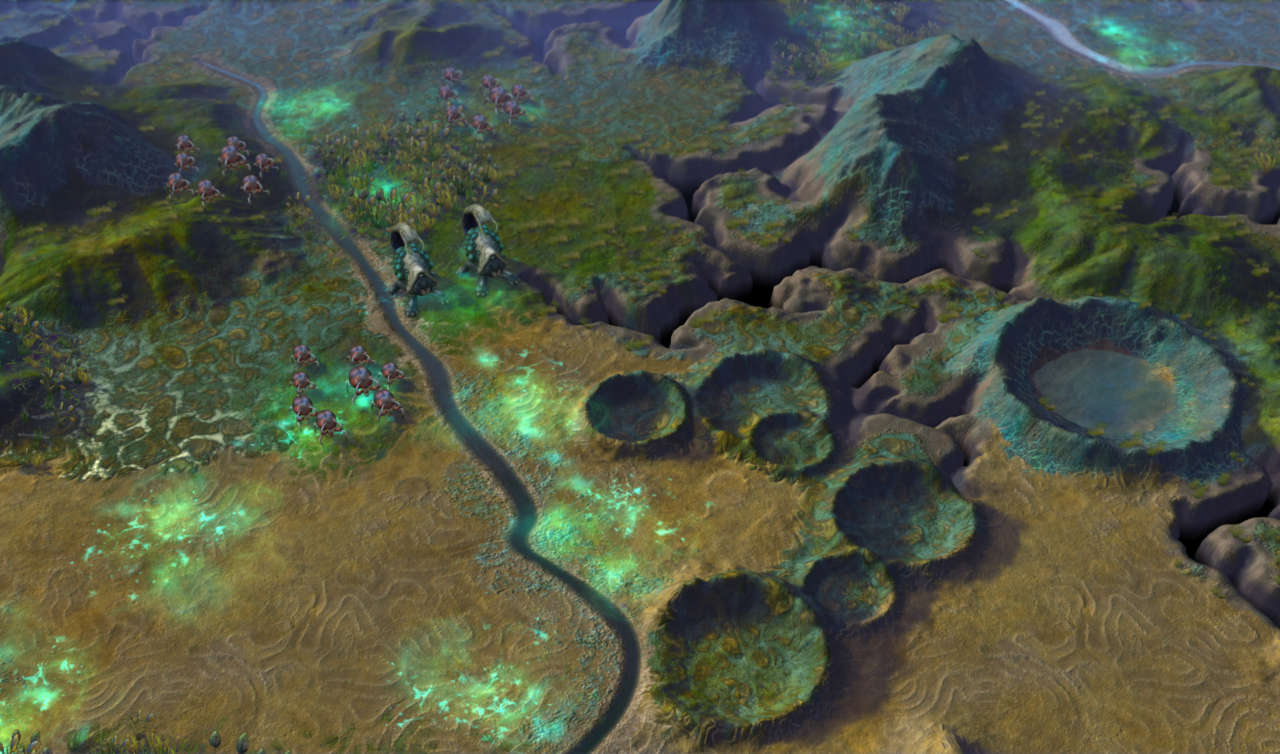
Previous Civilization games have presented a very specific version of human history, often avoiding uglier elements. Does Beyond Earth’s sci-fi setting let you comment on humanity’s darker side in ways previous Civilization games have not?
Frankly, I don't think that's really our job: to tell you what we feel is good or bad, or what our morality is, or what our opinion is about things. To me, that kind of detracts from the player’s role. We want to give players the opportunity to pursue their strategy without worrying about whether we--the developers--are going to frown on them and say, "That's bad. You’re a bad person. Stop that."
You don't want the player to see the developers wagging their fingers saying, "You shouldn't do that."
We try and set the table, step back, and let the player go in the direction they want to play. The idea of commenting on the future or trying to predict the future or commenting on different things is not what we try and do.
Exactly, that would just take you right out of the game. Instead of playing the game Civilization you're playing the game of trying to figure out what the designer wanted or of figuring out what the designer was thinking. That's really not fun and not the point of what we’re doing. We try and set the table, step back, and let the player go in the direction they want to play. The idea of commenting on the future or trying to predict the future or commenting on different things is really not what we try and do in the game.
The first Civilization had global warming in it, for example, and nuclear power. Those are somewhat controversial issues these days. And we didn't say nuclear power is good or bad or that global warming is a wonderful thing or a terrible thing. But they are possible consequences of different strategies that you might use and you can choose to use them or not. It's up to the player. We avoid some of these issues, but we try and kind of give you not just one side--or our particular opinion--on these issues but instead let you experiment and use your own ideas about different things.
Was there a particular faction that you tended to side with in the original Alpha Centauri?
Not really. I think they each kind of led to exploring a different part of the game. I always think one of the successes of Civilization is that it encourages you to try the science path this time, or try the military path, or maybe try the diplomatic path. It encourages you to wander into all the corners, the nooks and crannies, of the game and try all sorts of different things. I enjoy that, so I wouldn't tend to play the same character or style each time. Instead I like to see what is happening in all the different areas. The setting lends itself to that and the way Civilization games are kind of assembled lend themselves to that.
If we start seeing each faction as a set of formulas and min/maxes then we’ve failed in a lot of ways, I think. We want to keep you in-character, we want you to play for 200 hours and still feel like you’re stepping into that character and not that you’ve exhausted it or figured it out or whatever. If you start pulling the curtain back then we haven’t engaged you enough in the setting and the world that we’ve created. If we start thinking in math terms or programming terms or algorithmic terms then we’ve failed in a way and we need to fix that.
Sometimes people ask me, "What’s the secret to winning?" and what I say is, "If there’s a best strategy, I’m going to fix it. I don’t want there to be a 'best' strategy."
